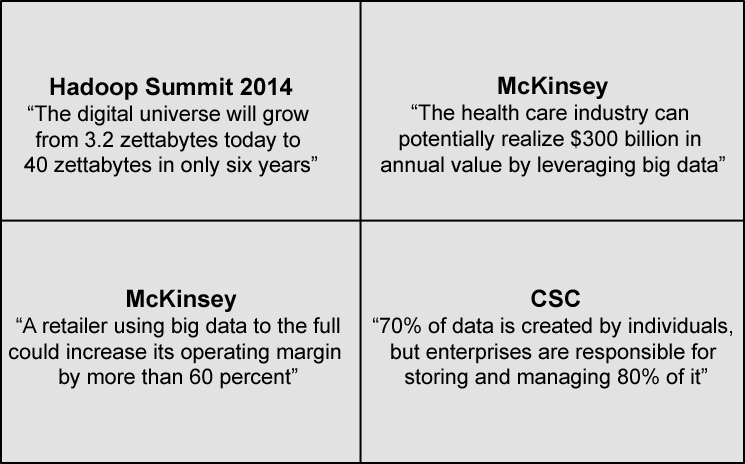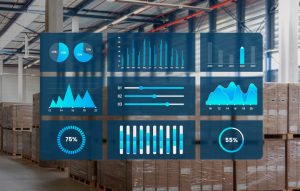The world, as we know it today, has transformed rapidly in the past decade. Among the numerous phenomena that surround us, stands one that has truly grown exponentially. Humans have observed, bettered and augmented every aspect of life. Our belligerent push into the technological space has helped us scale new heights, literally and figuratively!
With so much of machine-use, information is being generated non-stop, which is either recorded or discarded. What we sometimes forget is that a lot of that information is stored somewhere. Our searches, browsing, payments, locations, travels, pictures, videos, almost anything one can think of, is generating exabytes of data. Storing that data is one thing, structuring and analyzing it is another. The insights gathered from these analyses are really defining and shaping the world we live in.


Big Data, as the term has been coined, is much more than an internet buzz-term. With the increase in technical capabilities in both hardware and software, scattered data finally have the means to become meaningful, and be used to better numerous business processes. Your company’s databases can be linked to the ever-growing information collated from various sources like sensors, mobile devices, social networks, public databases among others. All these can be made into business sense and provide immense business value. There are numerous cloud-based services that can help you turn non-digitized data into a data-crunchable form at an affordable cost.
Data is knowledge; Analysis is insight
Not as BIG as you think
If you think big data is too big for you, then it is time for a reality check. Small, medium and large businesses around the world are already implementing big data strategies. The difference could be in the size and type of data. With cloud computing gaining traction, small and medium businesses have the platform to analyze their data through the cloud at a greatly reduced cost. Whether your business falls in retail, wholesale, service-related, big data can yield great dividends.
Inc. magazine covered a very interesting piece in their July/August 2014 issue on TECH: Big Data, Small Budget, which cites how three small businesses have benefited from big data analysis. All three companies had one thing in common, scattered data. Big data tools helped them make business sense and yield significant returns.
An IT company that specializes in consulting, analytics and portal development can be the right the start. A big data specialist will help you collate and restructure data, which can then be used for effective analysis. Combine this with a customized portal and you have a BIG-fix for analysis. This is a scalable solution for big data analysis and can yield significant returns at a lower initial cost.
Big Data in Retail
The retail industry can be considered one of the biggest benefactors of big data analysis, since it directly involves end-users. With contextual marketing technologies like beacons and NFC tags, retail businesses are generating more data, and that gives them the ability to monitor, analyze and deliver better retail experiences. Predict consumer trends, optimize pricing and promotions and meet consumer demands with real-time analysis.
Big Data in Financial Services
The rapidly diversifying financial services sector is also using new technology to keep pace with the competition. Personalized product offerings attract customers bringing additional business. A background check of the customer makes processing of loans easier, helping the banks manage risk and detect fraud. These are few of the many benefits of big data analysis in financial services.
Big Data in Healthcare
With the help of the right tools, hospitals and healthcare providers can innovatively use data assets, enabling them to reduce costs, improve quality and provide safer care. Data generated from healthcare can be varied and scattered in multiple systems. Collecting and structuring data from various sources like EHRs, personal medical devices, wearables, among others, makes the analysis easier and provides deeper insights in patient care.
Big Data in Telecommunications
The telecommunication sector produces and houses very large data sets due to the increase in smart phone usage and social media. Service providers can optimize routing by analyzing call data, conduct accurate marketing campaigns and enhance their product development.
With the pace at which technology is moving forward, we finally have the means to analyze and make sense of so much data that was lost between ledgers, filing cabinets and copiers. The other factor is the rise in cloud computing which can be used for storing, retrieving and processing data, making big data analysis as real as your business.










